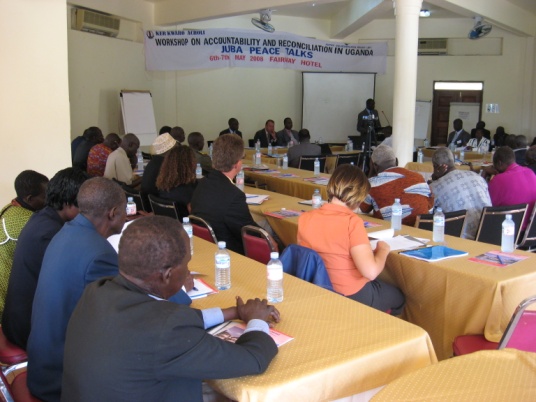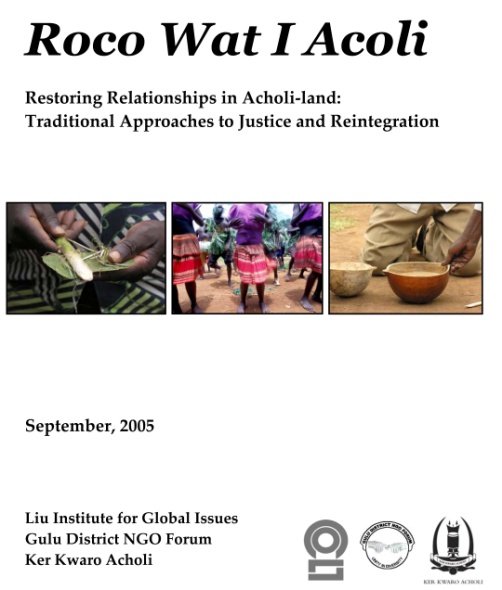
This workshop follows the conclusion of the Final Peace Agreement (FPA) in Juba between the Lord’s Resistance Army (LRA) and the Government of Uganda (GoU). Mediated by the Government of Southern
Sudan (GoSS) under Chief mediator Dr.Riek Machar, the vice president of Southern Sudan, this remarkable agreement which begun two years ago was to be signed by LRA leader Joseph Kony on 10th April 2008. However, he did not sign as expected and instead sought clarifications on the specificities on the protocol of accountability and reconciliation as well as the disarmament, demobilization and re-integration agreements. In particular, the LRA leader Joseph Kony wanted to know more about the Acholi traditional justice system of mato oput, its linkage to the proposed special division of the High Court and other formal institutions in the agreements.
It was on the basis of this that His Highness Rwot David Onen Acana II, the Acholi Cultural leader, with the assistance of the Justice and Reconciliation Project (JRP), was tasked to lead a consultative process that would bring together like minded actors to deliberate in an attempt to provide clarity to the LRA leaders’ concerns. Therefore, on the 6th and 7th May 2008, a workshop was convened at the Fairway Hotel, Kampala.
The objective of the workshop was to clarify the procedural steps required for the implementation of the Agreement on Accountability. As a result, the workshop was to produce an explanatory note outlining procedures on key technical issues in the Agreement on Accountability and Reconciliation that was to be made immediately available to the LRA leadership.
In arriving at these, the conference organizers identified key themes to be discussed, and these included: (i) the role of investigations and self-disclosure; (ii) the criteria for allocation of individuals to the various proceedings; (iii) description of various accountability institutions (courts, traditional justice, and truth-telling mechanisms) and their jurisdictions; (iv) the relationship between the various accountability institutions, and, (v) the possible outcomes of the proceedings for individuals..
To access the report, click here.


